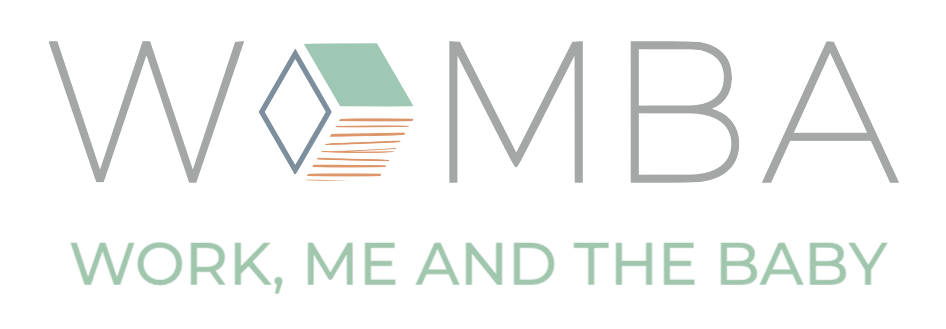The Thrive Model: Helping Working Parents Do More Than Just Survive
What if working parents didn’t have to choose between career and family?
For decades, mums and dads have been forced into a trade-off that benefits no one - not families, not organisations, and not society. Our four-year research programme with Hult International Business School proves there is another way.
The Thrive Model is a strategic framework and diagnostic tool that shows how organisations can adapt their systems - to enable working parents to do more than just survive - to thrive.
What is the Thrive Model?
At the centre of the Thrive Model is the outcome: thriving working parents. Thriving is highly connects closely with three other measures - 'Engagement', 'Intention to Stay', and 'Future Work Self'. While each is distinct, all four are highly and positively correlated. This means that organisations who already measure engagement, retention, or career ambition are capturing part of the picture. But by focusing directly on 'Thrive', organisations have visibility and the opportunity to create the specific conditions that enable better outcomes for working parents.
At the heart of the model is the Thrive Scale - 13 factors that parents told us are critical to thriving, grouped into two systems:
· The Organisational System - covering the policies and culture employers create.
· The Parental System - covering the agency, support, and resources available to parents themselves.
Finally, the outer ring of the model highlights the broader outcomes for both organisations and society, including Employee Retention, Career Confidence, and Gender Pay Gap Management.
The Organisational System
The Organisational System is divided into Policies and Culture, each containing Thrive Scale factors parents told us are critical. These 13 factors together form the Thrive Scale - the main diagnostic content of the model:
Policies:
· Flexible working hours - “If I could just work flexibly without guilt, I’d stay.”
· Remote / hybrid arrangements - “I had to step off the ladder.”
Culture:
· Supportive manager - “The company says the right things, but my manager doesn’t get it.”
· Supportive colleagues - “I arrived on my first day back and no one really knew where I had been.”
· Parent-friendly culture - “I want to be around for bedtime. That’s non-negotiable now.”
· Inclusive culture - “It was difficult to say I needed time off - I worried I was letting people down.”
These comments underline a vital truth: policies alone aren’t enough. Without an enabling culture, they fall flat. As Prof Lee Waller, Professor of Occupational Psychology, Hult International Business School explained:
“Without an enabling culture that proactively and genuinely supports diverse groups such as working parents, that practices equity not just equality, and ensures all employees are included, valued, and supported to achieve their potential, at best talent will not perform at their best, and at worst, they will leave.”
The Parental System
Alongside organisational support, parents themselves need agency and resources to thrive. These include:
· Financial stability - “You want to keep a roof over your head while keeping your children happy.”
· Affordable childcare - “Implementing a comprehensive and flexible childcare programme would be my top choice.”
· Supportive family and friends - “The only support I have is from other women going through the same.”
· Ability to balance work and personal identity - “It would mean everything to know my career won’t stall just because I had kids.”
· Ability to make choices - “I didn’t appreciate how much women give up.”
· Ability to bring whole self to work - “I’m not the same person - parenthood changed my goals.”
· Being trusted - “The most important thing at work is to be psychologically comfortable.”
These 13 Thrive Scale factors (across policies, culture, agency, and resources) show what truly matters for parents - and what organisations need to adapt to make a difference.
Why this matters
The Thrive Model gives leaders clarity in a space that has long been clouded by stereotypes and assumptions. For the first time, we can evidence the systemic levers that employers can influence - policies, culture, agency, and resources - that must align for working parents to thrive.
As WOMBA’s Co-Owner and Director, Helen Sachdev, explains:
“This isn’t about doing more for parents. It’s about ensuring that the people in your core talent pipeline - your future leaders - are able to thrive when it matters most.”
And as Dr. Carina Paine Schofield, Director, Leadership Impact Hub, Hult International Business School reminds us:
“Understanding how working parents experience the return to work is not just a matter of wellbeing - it’s a strategic imperative. These research insights offer leaders and organisations a roadmap to create more supportive, inclusive, and high-performing workplaces.”
The implications for leaders
The Thrive Model is more than a framework - it is a practical tool. Leaders and policymakers can now:
· Understand the full system required for parents to thrive.
· Develop strategy on a solid research base, with rigour and correlation to established measures.
· Use the diagnostic tool to benchmark, identify strengths and vulnerabilities, prioritise action, and track progress.
Supporting parents isn’t just the right thing to do. It’s a strategic imperative - one that benefits families, employers, and society as a whole.
Take action
The Thrive Model is ready to use - giving organisations the clarity they need to future-proof their talent pipeline and create a culture where parents can thrive.
Download the full paper here
Or, if you’d like to explore how the Thrive Model could help your organisation, get in touch with us at WOMBA.
Because thriving working parents mean thriving organisations.
